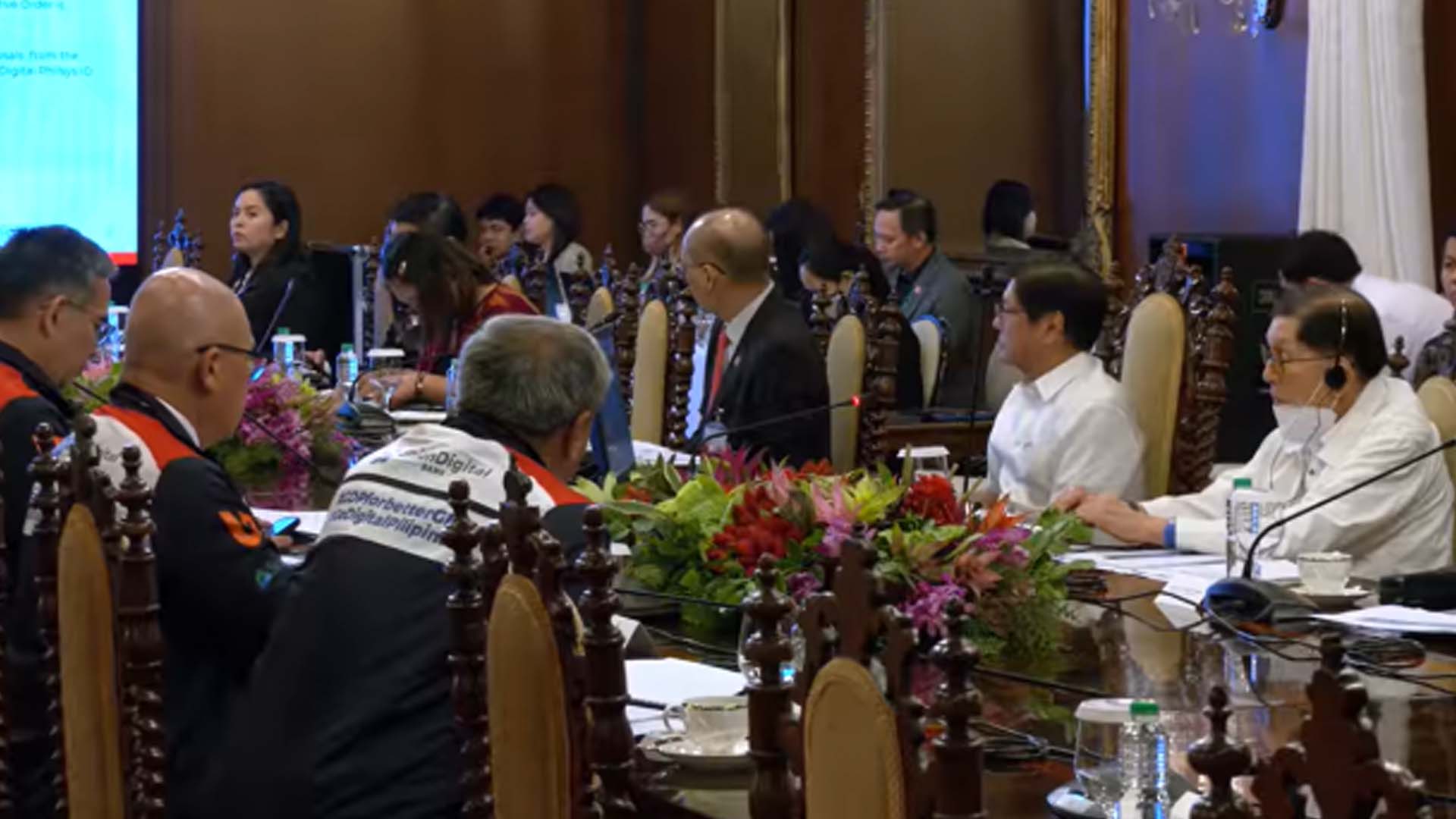President Ferdinand R. Marcos Jr. has sought to raise public awareness on cashless transactions as part of his efforts to push for full digitalization in the country, Malacañang said Friday.
This, as Marcos backed the Paleng-QR Ph, an initiative that aims to maximize the use of digital payments in markets and tricycle hubs using online applications.
The Paleng-QR Ph program was discussed during Marcos’ meeting with members of the Private Sector Advisory Council (PSAC) Digital Infrastructure Cluster at Malacañan Palace in Manila on Thursday, Communications Secretary Cheloy Garafil said in a statement.
“President Ferdinand R. Marcos Jr. fully supports the Paleng-QR Ph Plus Initiative and wants government agencies to educate Filipinos on the use of e-wallet and other digital payment apps to prop up economic activities, particularly with the inclusion of micro, small and medium enterprises (MSMEs),” Garafil said.
The QR Ph is an initiative of the Bangko Sentral ng Pilipinas(BSP) and the payments industry to have a national quick response (QR) code standard for digital payments.
The digital program was launched in 2022, targeting merchants, business owners and other forms of local transport.
The adoption of QR codes and the use of digital payment apps will make savings and loan applications in banks a lot easier for the public, especially the farmers, fisherfolk and small businesses, PSAC members told Marcos.
PSAC members added that the government could eliminate the 5-6 lending and similar money lending businesses.
PSAC member and Globe Telecom president and chief executive officer (CEO) Ernest Cu said the QR codes and other digital payment apps are like a “home run” for the government.
Cu acknowledged the importance of educating the public, adding that the country has a “very high technology adoption rate.”
“We have to do it. It’s a grassroots-level approach. There are also videos on YouTube and we also have TikTok to get people to educate themselves. And if you use the app regularly, you will see it being offered to you on the app,” he said, sharing their “excitement” to start serving the public markets using QR codes.
BSP Governor Felipe Medalla said the initiative will create a “big” impact on financial inclusion.
“Mr. President, this one has a big impact on financial inclusion because the problem is there’s no way for banks to assess their credit scores. But if we have a digital database with their payment habits, that will be a substitute and a good proxy for credit scoring. This actually helps in the financial inclusion advocacy of the BSP and the government,” he said.
PSAC lead convenor and Aboitiz Group president and chief executive officer (CEO) Sabin Aboitiz was also present during the meeting with Marcos, along with Union Digital president and CEO Henry Rhoel Aguda, Bank of the Philippines Islands chief operations officer Ramon Jocson and PLDT Inc. president and CEO Alfredo Panlilio.
Other recommendations
Marcos and the PSAC-Digital Infrastructure Cluster also discussed recommendations to further improve the country’s digital infrastructure.
Garafil said the PSAC has recommended the adoption of the National Cybersecurity Plan (NCSP) 2023-2028 and the Connectivity Index Rating System.
The National Cybersecurity Plan 2023-2028 aims to provide a safe and reliable cyberspace for all Filipinos and create future cybersecurity projects between the government and the private sector.
The Connectivity Index Rating, on the other hand, is patterned after the hotel industry’s star rating system which allows citizens to rate public establishments on its internet quality based on criteria such as adequate infrastructure capacity and internet speed.
The PSAC also sought an amendment to the National Building Code of the Philippines to make connectivity a priority in buildings and developments, same as electricity and water, based on a Facebook post by state-run Radio Television Malacañang (RTVM).
It wanted building owners and property developers to provide facilities to enable connectivity services to residents and businesses.
The council also recommended that the Development Academy of the Philippines, in partnership with the National University of Singapore-Institute of Systems Science, conduct a Philippine Civil Service Digital Leadership Program for mid-level to senior civil servants on digital leadership and agile thinking.
It also recommended strengthening the integration of public financial management information systems and streamlining its processes to enhance the management of government financial resources through an integrated digital system. (PNA)




















